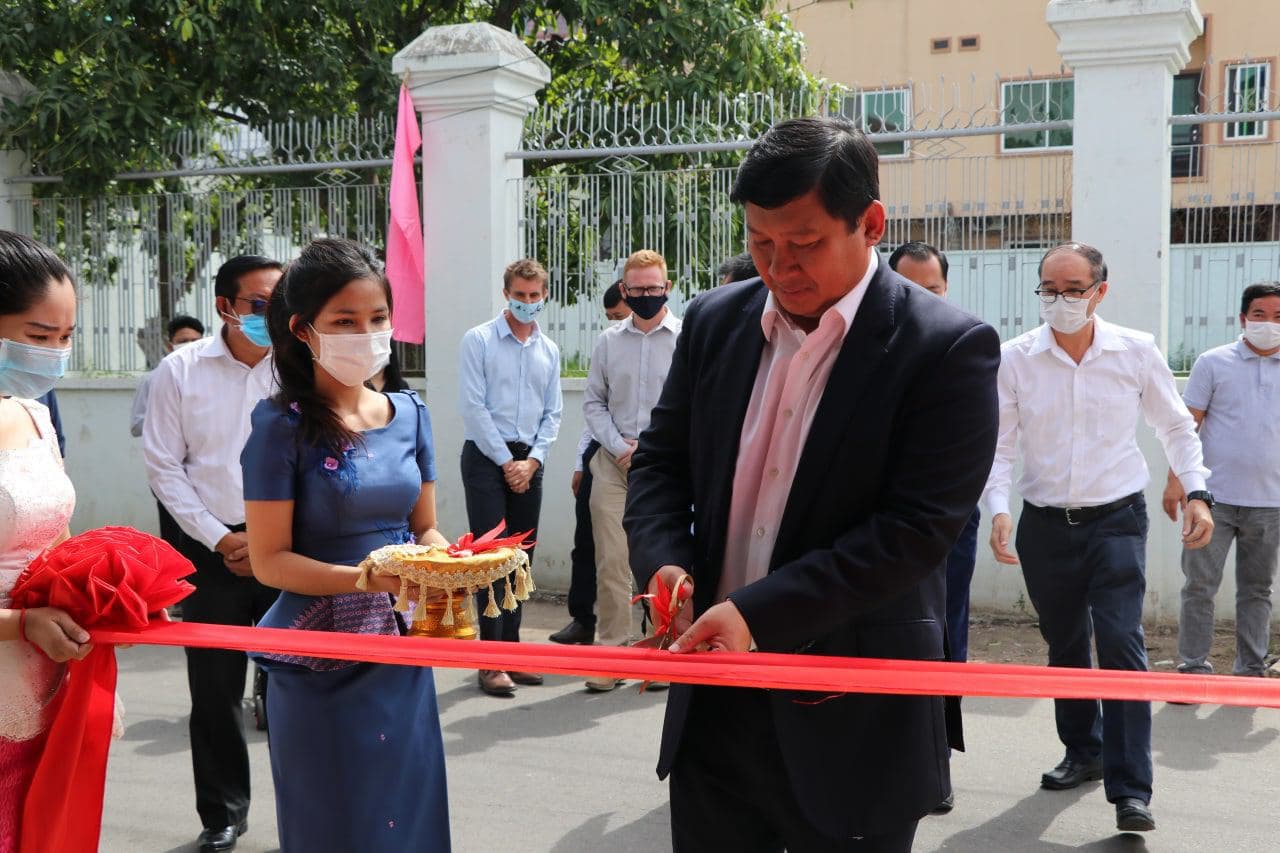 On Tuesday 22nd December 2020, WCS, the IBIS Rice Conservation Co., Ltd IRCC and Samsom Mlup Prey Organisation (SMP) were honored to welcome the H.E. Say Samal (Chairman of National Sustainable Development Council and Minister of Ministry of Environment) to the IBIS Rice warehouse located in Sangkat Phsar Derm Thkov, Phnom Penh. During his visit, his excellency was shown the manufacturing and packaging of wildlife-friendly and organic products and received the opportunity to taste some of the latest IBIS Rice snacks made from Phka Rumduol.
On Tuesday 22nd December 2020, WCS, the IBIS Rice Conservation Co., Ltd IRCC and Samsom Mlup Prey Organisation (SMP) were honored to welcome the H.E. Say Samal (Chairman of National Sustainable Development Council and Minister of Ministry of Environment) to the IBIS Rice warehouse located in Sangkat Phsar Derm Thkov, Phnom Penh. During his visit, his excellency was shown the manufacturing and packaging of wildlife-friendly and organic products and received the opportunity to taste some of the latest IBIS Rice snacks made from Phka Rumduol.
IBIS Rice was founded by the Wildlife Conservation Society (WCS) and is named after the Giant Ibis, Cambodia’s national bird. The Giant Ibis is the largest ibis worldwide and, owing to its rarity, holds near-mythical status for bird-watchers and conservationists. The Giant Ibis is classified as Critically Endangered, predominantly due to the effects of human disturbance and hunting; remaining birds are concentrated in northern Cambodia. In 2009 WCS with the support of the Royal Government of Cambodia, developed the Ibis Rice project as a conservation tool. The objective was to incentivize local communities to engage in conservation through the purchase of organic jasmine rice at a premium from farmers who commit to protect the forest and stop hunting. The project has improved local livelihoods while addressing the principal threat to Critically Endangered species, including the Giant Ibis, and their habitat: conversion of forest and wetlands to rice fields.
In 2017 the IBIS Rice Conservation Co., Ltd (IBIS Rice) was incorporated by WCS to fulfil the potential of the product and scale-up production. IBIS Rice now works with 1,500 wildlife-friendly farmers paying a premium of 50 percent above market price for organic, wildlife-friendly (Pkha Rumduol) jasmine rice. Farmers commit to no logging, hunting, or use of chemicals, thereby protecting the landscape and its species. The rice is certified wildlife-friendly and organic to EU and USDA standards. It is now sold globally into high-end markets, including Europe and Canada. The project has significantly improved livelihoods while reducing deforestation by 75 percent in the areas where farmers live and cultivate. The quality of the Pkha Rumdoul rice and the story that goes with it means that international demand for IBIS Rice has outpaced supply. As IBIS Rice recruits and trains more farmers, additional working capital financing is needed for larger paddy purchases.
Said H.E Say Samal “The combination of Wildlife Friendly and Organic products is a great way to access high Value Markets and we should pay farmers as high a price possible to farmers that follow this. We look forward to supporting this initiative going forward.”
The Minister encourages farmers in the protected areas to join the project more actively. He suggested that WCS and SMP expand the project to other areas and that more Cambodian people support IBIS rice.
After officially opening the facility and touring the manufacturing processes presentations and discussions followed. Discussed was how WCS, SMP, IRCC best collaborate to scale up the successful model and the challenges that need to be addressed. Nick Spencer, CEO of IRCC said “Our consumers value the organic quality of the product but especially the conservation and livelihood outcomes that they deliver by purchasing our rice. To deliver the consumer a product they can trust we have strict compliance the farmers need to follow, and in turn our business can pass that value back to farmers. However, there are pressures and risks to this way of farming when forest is cleared and chemicals are used by newcomers to the communities. We hope to work more closely with the MoE and local authorities to protect and scale what is an opportunity that has real potential.”
“Delivering conservation means we must work closely with communities in Wildlife Sanctuaries to make sure their aspirations are met whilst the habitat around them is protected. IBIS Rice is a globally recognised example of that,” said Ken Serey Rotha, WCS Country Program Director.
View document in Khmer
********* * *********
For more information, please contact:
H.E Neth Pheaktra
Secretary of State
Ministry of Environment
Keo Socheat
Executive Director
Sansom Mlup Prey
Tel: +855 86550027
Leak Ratna
Communications Manager
Wildlife Conservation Society Tel: 012 819 121